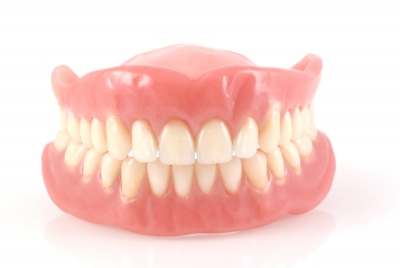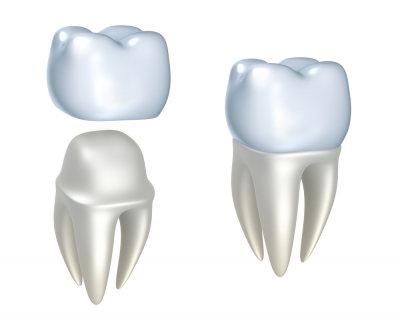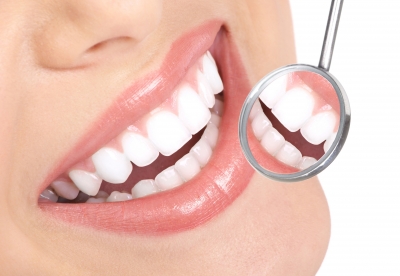
Eric A. Perez DDS
Family Dentistry
- 707.224.0496
- Mon,Wed,Thu: 8am-5pm, Tue:9:40am-6pm Fri:8am-4pm
- 1150 Imola Ave Napa, CA 94559


Untreated gingivitis can advance to a more serious and destructive form of gum disease: Periodontitis. With time, plaque can spread and grow below the gum line and destroy tissues and bone. In periodontitis, unremoved plaque hardens into tartar (calculus). As plaque and tartar continue to build up, the gums begin to recede from the teeth, and pockets form between the teeth and gums. With advanced periodontitis, the gums recede farther, destroying more bone and the periodontal ligament. Scaling and root planing removes the calculus below the gums and serves to smooth roots to prevent the trapping of bacteria.
In some cases of tooth damage and decay, we can provide an alternative to extraction that will save your tooth and improve your oral health: root canal therapy. During the root canal therapy, Dr. Perez will remove damage and decay and fill the root canals will special medicated materials. After the tooth has been sealed and capped with a crown, you are free to enjoy your newly healthy smile!
A root canal may be necessary for the following reasons:
One of the main goals of modern dentistry is the prevention of tooth loss. All possible measures should be taken to preserve and maintain your teeth because the loss of a single tooth can have a major impact upon your dental health and appearance. However, it is still sometimes necessary to remove a tooth.
To improve your oral health, it is sometimes necessary to extract a damaged or decayed tooth. We may recommend tooth extraction if a tooth is seriously damaged, has been affected by advanced periodontal disease, or if a tooth is impacted. In order to maintain and improve your oral health, it is necessary to have a permanent tooth extracted (pulled).
One of the main goals of modern dentistry is the prevention of tooth loss. All possible measures should be taken to preserve and maintain your teeth because the loss of a single tooth can have a major impact upon your dental health and appearance. However, it is still sometimes necessary to remove a tooth.
Remember to consult with Dr. Perez about your tooth replacement options as you consider extraction.

A denture is a removable replacement for missing teeth. A complete denture replaces all of the teeth while a partial denture fills in the missing teeth and prevents the remaining teeth from drifting into the open spaces. A denture can be “immediate” or “conventional”. An immediate denture is placed immediately following the extraction of the natural teeth. A conventional denture is a replacement for an existing denture. Partial and full dentures may consist of a metal or all acrylic framework and teeth. Implants can also be placed to help enhance the stability of these removable appliances.

Crowns are dental restorations otherwise known as "caps" which are coverings that fit over teeth. Crowns may be necessary because of broken down old fillings, fractured, chipped or sensitive teeth. Crowns are also used to improve the appearance of natural teeth that are malformed, malpositioned or discolored. Our office has the ability to make and cement your crown in the same appointment so there is no need to wear a temporary or make a second appointment.
A fixed bridge is a type of restorative dental component that is created to permanently replace one or more missing teeth. Dental bridges are considered cosmetic (a visual improvement), but can also function to prevent future dental problems. People with missing teeth have a higher risk of developing tooth decay, periodontal disease, and a temporomandibular joint disorder (TMJD). In addition to replacing missing teeth and reducing your risk of serious dental conditions, dental bridges can also improve the way you talk. Placing a bridge usually requires two appointments. Your dentist will attach the bridge (one or more replacement teeth in a row) to teeth on either side of the gap in your smile. After the fixed bridge is secure, you can enjoy eating, speaking, and smiling with confidence.

Dental implants are so well designed that they mimic the look and feel of natural teeth. Implants are usually made of a synthetic yet biocompatible material like metal or ceramic. Surgery is necessary to prepare the area for an implant and place the implant in the mouth. Following the procedure, a period of time is required for the implant to take hold and for bone tissue to build up and anchor the device. In some cases, metal posts are inserted into the implant during a follow-up procedure to connect the tooth.Because implants require surgery, patients are administered anesthesia and, if necessary, antibiotics to stave off infection following the procedure. Like any restoration, implants require diligent oral hygiene and proper care to ensure they last a long time.
Establishing healthy habits early in life can help your child continue to have healthy teeth and gums throughout his life. As part of our children’s dentistry services we provide cleanings, fluoride treatments and sealants. We also treat tooth decay and can provide orthodontic consultations to determine if braces are in your child’s future. Our office welcomes children at age 1 so that your child will have the foundation of a healthy and beautiful smile for life.
Composite (tooth-colored) fillings are used to repair teeth affected by minor decay or damage. Composite fillings are a durable, aesthetic choice that can restore your tooth’s function, health, and appearance. Composite resin is available in a number of shades, allowing your dentist to match the color of your filling to your natural tooth color for a beautiful, natural-looking restoration.
Cosmetic bonding is a simple treatment that can dramatically improve the appearance of cosmetic dental flaws. Dental bonding can enhance the beauty of your smile, and is usually completed in just one visit. Cosmetic bonding involves bonding composite (tooth-colored) resin to your teeth. Composite resin is available in a variety of shades. Cosmetic dental bonding can improve the appearance of cosmetic dental flaws such as:
We are committed to helping you have a comfortable, enjoyable dental experience. If you are nervous or anxious about your dental treatment, you may benefit from nitrous oxide. Nitrous oxide, also known as laughing gas, is a gas that you inhale during your procedure. You will not sleep, but you will feel very comfortable and at ease, and you may not remember portions of your dental visit. Nitrous oxide is very safe, and the effects wear off within minutes of the end of the procedure
Your initial oral examination includes a visual examination, charting, periodontal probing, diagnosis and treatment recommendations. We will also take x-rays, which include the full mouth x-ray series for proper diagnosis of the anterior (front) and posterior (back) teeth as well as the bite-wing x-ray series for proper diagnosis of decay of the posterior teeth.
When you come to our office for a dental hygiene visit, one of our highly trained hygienist, will clean, polish and examine your teeth and gums. She will also go over any suggestions for improving your dental hygiene routines at home. . Our team works hard to prevent gum disease and increase the longevity of your teeth. These dental hygiene visits are an important part of your dental health and can go a long way towards preventing periodontal disease and any need for additional dental work.

Teeth whitening agents actually change the color of your teeth, but only are effective on certain types of stains. For example, bleaching agents have a difficult time removing brownish or grayish stains. These products also are not as effective on pitted or badly discolored teeth, or on restorations such as crowns, bridges, bonding and tooth-colored fillings (porcelain veneers or dental bonding may be more appropriate in this case). Professional whitening performed by our office is considered to be the most effective and safest method; done properly, tooth whitening can last as long as five years. Over-the-counter whitening systems are somewhat effective as long as they are monitored and directions followed closely.

Our goal is to help you minimize the risk of emergency treatment. We are readily available to help anyone who is experiencing dental pain. A knocked out tooth or bitten tongue can cause panic in any parent, but quick thinking and staying calm are the best ways to approach such common dental emergencies and prevent additional unnecessary damage and costly dental restoration. This includes taking measures such as application of cold compresses to reduce swelling, and of course, contacting our office as soon as possible. If you have a dental emergency, call us right away at (707) 224-0496.